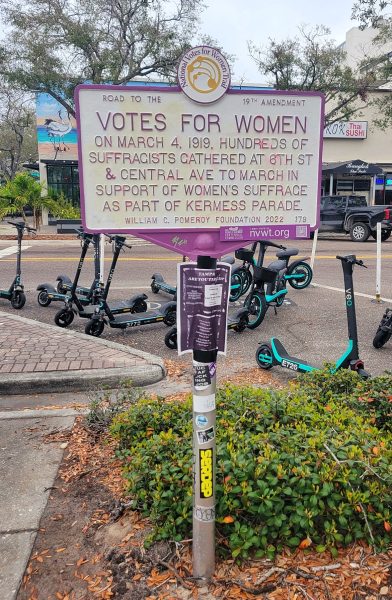A Fresh Start: Cleaning Your Closet
When clothes don’t fit or no longer serve their purpose but remain in relatively good quality, they should ideally go to charities or thrift stores in a donation.
With a new season comes new beginnings. Whether it’s a resolution to exercise more or a goal of saving $500 every month, society collectively rings in the change of self with the change of the calendar. Although personal aspirations are essential to living a productive and fulfilled life, a more pressing concern looms over the future. More recently, the state of the environment has been a concern, and while temperatures rise, icebergs melt, and pollution becomes unbearable, what can consumers do to limit their carbon footprint and create a clear and clean mindset? The answer is simple: clean out your closet. It’s as easy as organizing, donating, and upcycling.
The first benefit is obvious. When clothes don’t fit or no longer serve their purpose but remain in relatively good quality, they should ideally go to charities or thrift stores in a donation. Donations benefit more than just those in need. Thrift stores such as Goodwill or the local Sunshine Thrift Store turn profit that ultimately creates jobs and gives those who may not have money to spend on brand-new items the opportunity to have a large selection of anything and everything.
Secondly, decluttering has been proven to reduce stress and clear the mind. Verywell Mind, a mental health news outlet, provides insight as to why that is. “Clutter and mess can create more stress and anxiety, but by cleaning, organizing, and reducing the clutter, people can take control of their environment and create a more relaxing environment that helps them focus better on the more pressing issues in their lives.”
Lastly, upcycling. The most creative way to organize the overflowing closet is to play dress up and figure out what works and what doesn’t. Sometimes you may not know what goes together until it’s on. Old clothes can become new ones with creative direction. Upcycling does not only pertain to using clothes as clothes; old t-shirts can become rags, a couple of easy stitches and a skirt is a tote bag, and so on and so on.
With few improvements and small strides, the road to environmental and mental change can be simple.










